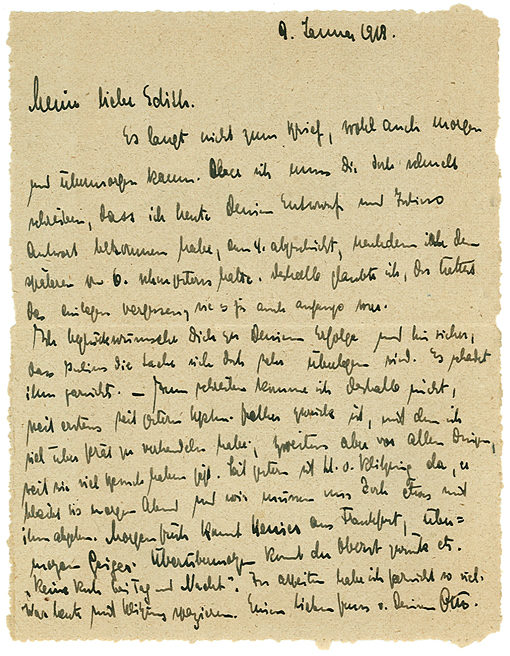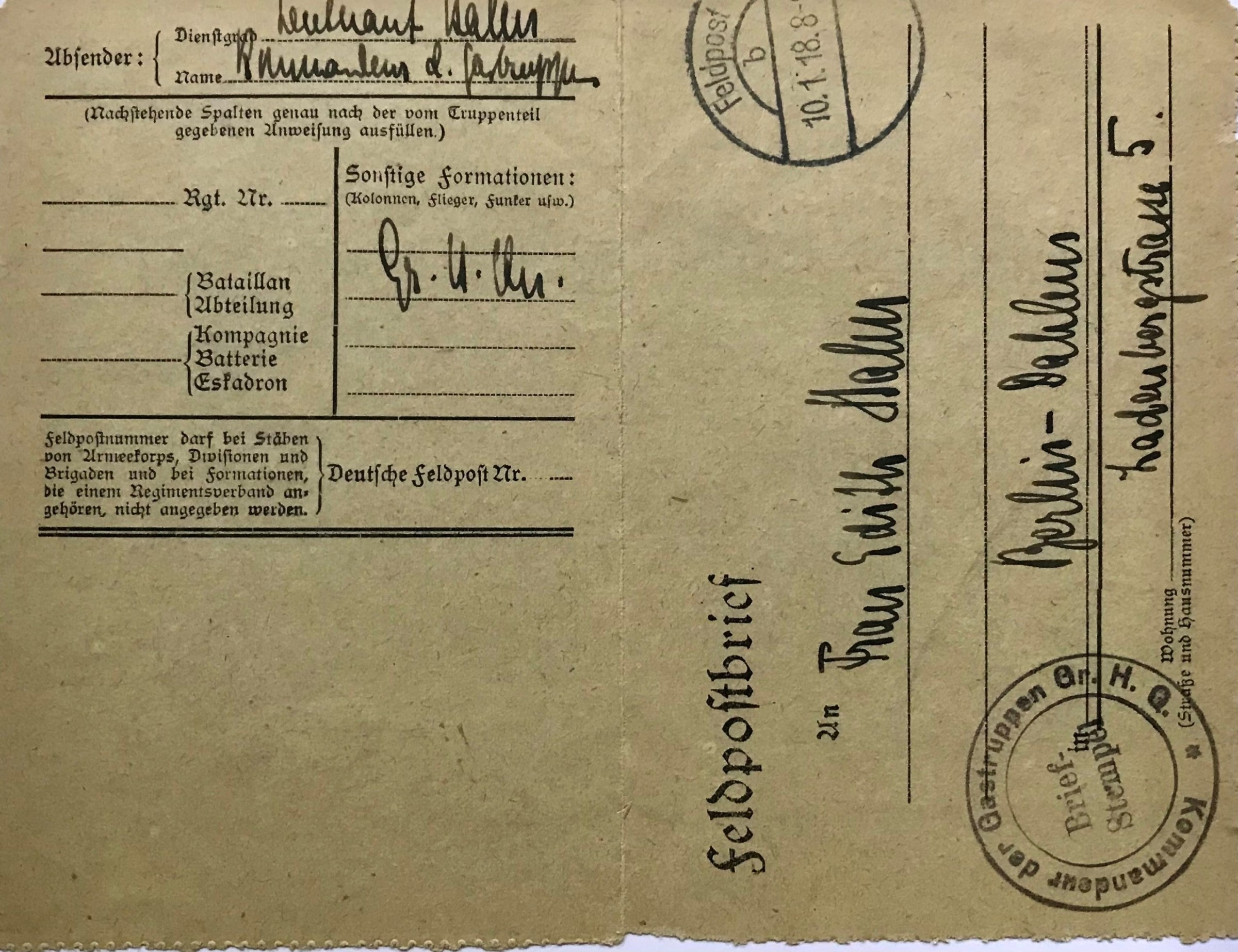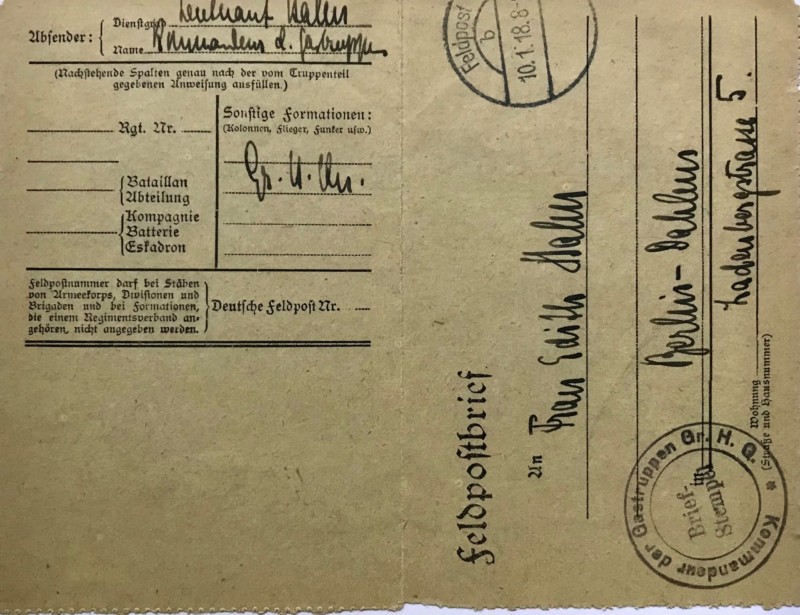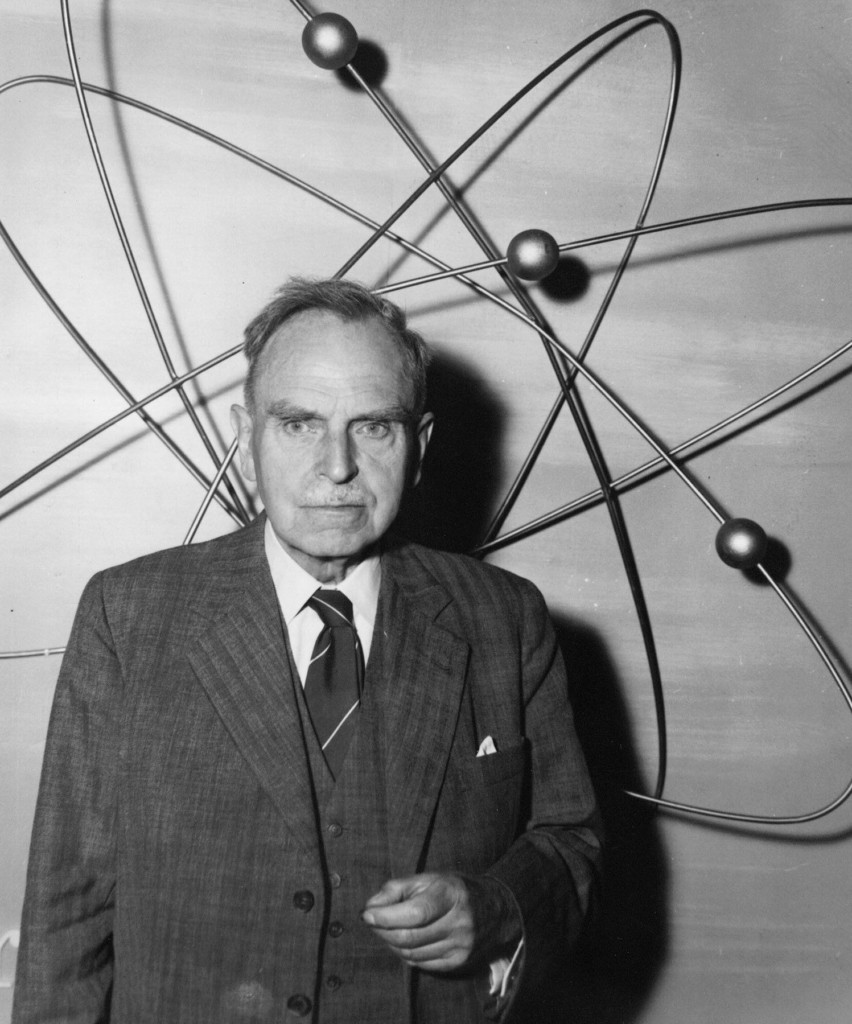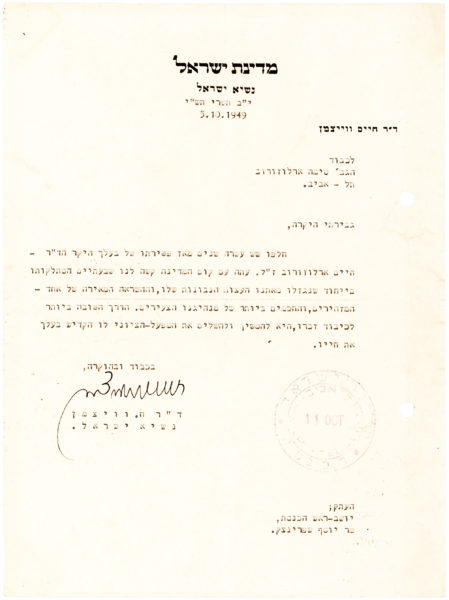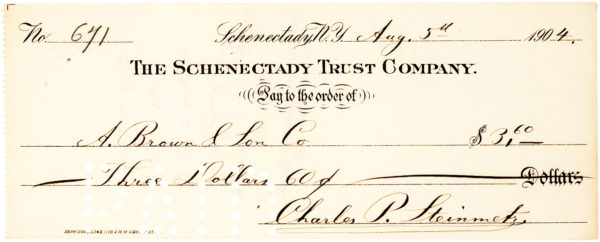HAHN, OTTO. (1879-1968). German chemist and physicist; co-discoverer (with Lise Meitner) of protactinium; awarded the Nobel Prize for chemistry in 1944 for his work on nuclear fission. ALS. (“Otto”). 1p. Small 8vo. N.p. (Military Post; Sender: Lieutenant Hahn, Commander of Gas Troops), January 9, 1918. To his wife Edith (1887-1968). In German with translation.
“There is not enough for a letter really, nor will there be tomorrow or the day after. But I do have to let you know that I received your draft and Julius’ answer, mailed on the 4th, after having received the later letter from the 6th already yesterday. That is why I thought you had forgotten the enclosure, as was the case at first.
I congratulate you on your success and am certain that Julius will think things over very carefully. It will not hurt him. – I am not getting around to writing because since Easter, Capt. Spelker [?] has been back with whom I must do a lot of negotiation about equipment and, secondly, most of all because we have a lot of … here. Since yesterday H. v. Klitzing has been here; he is staying until tomorrow night, and we do have to engage a little with him. Tomorrow morning Heiser [?] comes from Frankfurt, and the day after it is Geiger. The day after that, the colonel will be back, etc. ‘There is no rest day and night.’ I actually do not have that much work to do. Today I went for a walk with Klitzing. Affectionately, your Otto”

